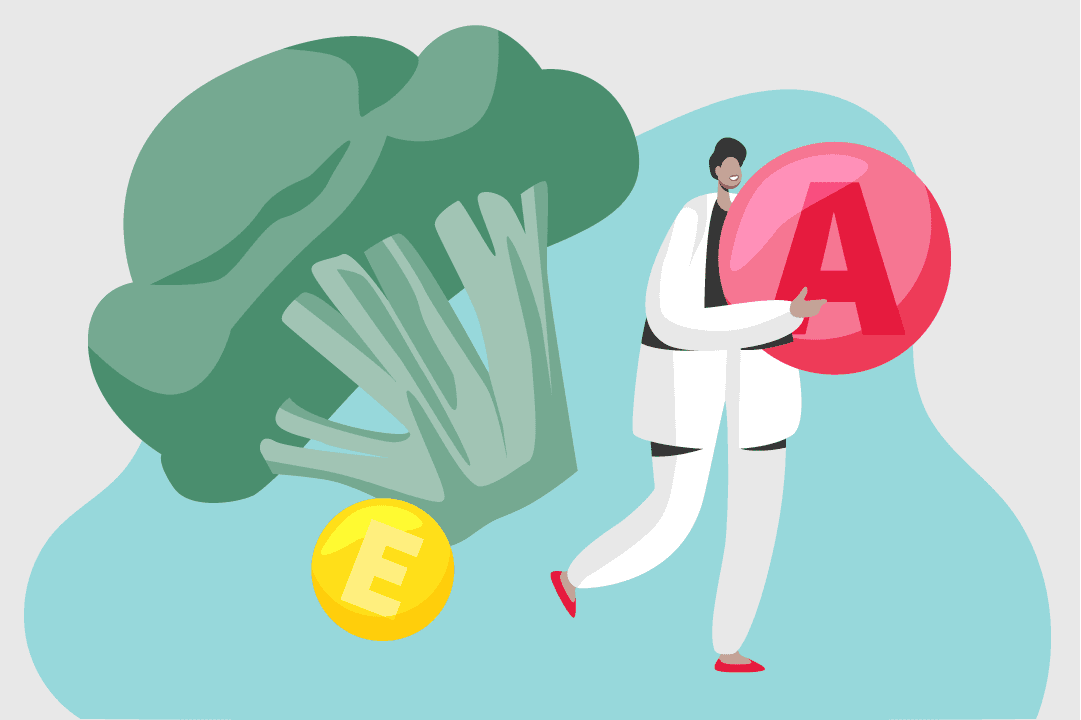Nutritionist & Dietitian Careers in Australia: How to Start Your Nutrition Career

Learn everything you need to know about the field of nutrition and dietetics, and discover the steps you need to take to become a nutritionist or dietitian.
Food influences all of our lives, and it has an enormous impact on human health. It fuels our bodies to accomplish so much, and there’s no one who can live without food.
Healthy living and improving people’s relationship with food has become a more open discussion over the recent years. You may have found yourself increasingly interested in – and even passionate about – how food relates to health.
But how can you turn your enthusiasm for healthy eating into a job where you can make a positive impact in people’s lives?
Working in nutrition and dietetics is a brilliant way to make both individual and large-scale impacts in the healthcare sector. Through improving population health, you are taking the pressure off other parts of the system, such as physicians and surgeons dealing with acute health problems.
Before diving into a new career, it’s important to learn about the industry to decide whether it is truly right for you. Your mind may be full of questions, including:
And that’s just the start!
No matter what your interests are within the field of nutrition and dietetics, there is a pathway into the industry for you. Nutrition professionals of all stripes work in a variety of different roles, settings and industries, catering to a wide range of interests and specialisations. Finding a place that aligns with your interests and passions can be an exciting journey.
What do nutritionists and dietitians do?
Nutritions and dietitians are nutrition science professionals who study how food and nutrition relate to human health. They provide dietary information and advice on how to improve their clients’ wellbeing.
As a nutrition professional, you’ll bring the latest knowledge and understanding of nutrition science to the public. Nutritionists and dietitians have the crucial role of improving large-scale practices and eating behaviours so people can live their healthiest and happiest lives.
You can make a difference on an individual level, too. Dietitians and nutritionists help people make dietary changes that will improve their health and even make other medicine or interventions unnecessary.
A career in nutrition means you have the chance to positively impact people’s health and address the underlying cause affecting them. Nutrition professionals can improve people’s health and immune systems so that they may not get sick in the first place. Think of it like raising the bar of health standards across the board.

What Exactly Does a Nutritionist or Dietitian Do?
Nutritionists help us with healthy eating… but it’s hardly that simple! There’s a lot involved in being a nutritionist, day-to-day. Discover the job description for a nutritionist, including tasks, duties and areas of expertise.
Dietitian vs nutritionist – the difference explained
In Australia, dietitians are distinct from nutritionists. Only dietitians are accredited to work in clinical practice, hospitals and the medical industry.
What is a nutritionist?
Nutritionists provide expert, evidence-based health and dietary advice for groups and communities. While they primarily focus on population and community health, they also advise and serve a wide array of sectors, including the food industry, schools, government, and the media.
There are no government or industry regulations on the term ‘nutritionist’, meaning that anybody can call themselves a nutritionist without a qualification. However, The Nutrition Society of Australia’s Voluntary Register of Nutritionists exists to distinguish the credentials of Nutritionists between trained and untrained professionals.
To be accepted into the register, you will need a Diploma of Nutrition or a Bachelor of Science majoring in Nutrition. You will then be recognised with one of these statuses:
- Associate nutritionist
- Registered nutritionist
- Registered public health nutritionist
What is a dietitian?
Dietitians provide expert information and advice around nutrition science. Unlike nutritionists, they are qualified to work in clinical practice, hospitals & the medical nutrition industry.
The Dietitians Association Australia (DAA) defines dietitians as “scientists with a special focus on nutrition and dietetics” (Program Accreditation Manual).
Dietitians can work one-on-one with clients to help them address and treat health concerns, prescribing dietary treatments for various conditions including food allergies, obesity, cancers, diabetes, gastrointestinal diseases.
Once qualified, dietitians are given the title: Accredited Practising Dietitian (APD).
“APD is the only credential recognised by the Australian Government, Medicare, the Department of Veterans Affairs and most private health funds as the quality standard for nutrition and dietetics services in Australia.” Nutrition Australia.
How to become a nutritionist
Although no formal qualifications are necessary to become a nutritionist, most nutritionists have a tertiary qualification, and you will need one to become registered with the Nutrition Society of Australia. Common qualifications include:
- Diploma of Nutrition
- Bachelor of Health Science
- Bachelor of Nutrition Science
If you’re serious about becoming a nutritionist, you should apply to the Nutrition Society of Australia (NSA) Voluntary Register of Nutritionists. After that, you must renew every 3 years to stay registered.
How to Become a Nutritionist
There are numerous nutrition courses available to help you kick start your health career.
Depending on the education level you choose, you could be entering the field of nutrition within one year!
Learn More
How to become a dietitian
To become an APD (Accredited Practising Dietitian), you must take an accredited university degree – either a bachelors or masters.
Here’s the full list of Australian accredited dietetics programs from Dietitians Australia.
These courses usually take the one of these forms:
- 4-year dietetics degree with accreditation
- 3-year degree which qualifies you to enter an accredited Masters program
Accredited programs are shaped by the requirements of the DAA, which include minimum content guidelines for science. So, in the first two years of your degree, at least half of your classes will be science subjects including biology, chemistry and physiology. These minimum content guidelines are then an entry requirement for Masters programs in dietetics.
As part of your course, you will also complete 100 days of placement in your final year.
Accreditation requirements for dieticians
In addition to your study, you must fulfil the following criteria to gain accreditation as a dietitian:
Why choose a career in nutrition?
Good salary and job prospects
Nutrition is a rewarding career where you can have an impact on health on a mass-scale. While it’s a smaller industry than others, it’s growing strongly.
The average nutritionist salary is $94,045, and the average dietitian salary is $97,500. Nutritionist and dietitian salary in Australia tends to fall within a range of $77,000-$113,000.
Like any career, salary tends to start lower and grow with your experience.
Young, flexible & female-friendly (but that doesn’t mean males aren’t welcome!)
Nutrition is a young, female-dominated profession (94% of nutritionists and dietitians are women) and almost half of workers are part-time. This makes it an excellent option if you’d like to raise a family and have a flexible job that fits around your life. If that’s not your plan, it’s also a great choice if you prefer a supportive work culture that prioritises a work-life balance, rather than a competitive one.
Although the nutrition industry employs more females, that shouldn’t discourage males from working in this profession! If anything, more males are needed in the nutrition field to help make it more balanced.
Challenging and fulfilling
Nutrition can make for an exciting and fulfilling career.
Working as a nutrition professional, you will be:
Knowledgeable
You’ll always be up to date with nutrition science.
Respected
This job is well-respected in the community.
Fulfilled
You will help people transform their lives for the better.
Impactful
You’ll make changes on a large scale.
Dietitan vs Nutritionist: What’s the Difference?
Nutritionists and dietitians may seem similar on the surface, but they offer very different types of services, according to their levels of qualification. So what are the most important differences between dietitians and nutritionists, and which career would suit you better?
Types of nutritionist jobs
Studying to be a nutritionist opens many career paths to you across a wide variety of industries. It can be truly surprising how many fields nutritionists are found in!
Some of the most common jobs include:

Where Do Nutritionists and Dietitians work?
Nutrition, health and wellness are the centre of our goals, to-do lists and New Year’s resolutions, so it’s not surprising that the industry is booming. So what kinds of workplaces might you find yourself in if you decide to become a nutritionist or dietitian?
Types of dietitian jobs
Dietitians don’t just work in clinics or hospitals. You can find them working in all the jobs you would expect and more, including one-on-one with patients at a clinical practice, in research and teaching, or with the community.
Is a career in nutrition right for you?
Personal qualities you’ll need
Interpersonal
Are you a confident speaker and communicator? Are you good at influencing and persuading others?
Analytical
Are you analytical? Would you enjoy researching, investigating, and coming to general rules or practical conclusions?
Service-oriented
Do you have a natural tendency toward helping, counselling and teaching others?
Enterprising
Are you enterprising? Do you start and carry out projects, lead others, and take risks?
Problem-solving
Are you a sharp problem solver? Do you spot potential problems before they happen?
Nutritionist skills
Knowledge of nutrition & wellbeing
Research & analysis of scientific papers
Compassion
Listening
Organisation
Problem-solving

Is a Career in Nutrition Right For You?
Before you dive straight into a nutrition course, you’re probably wondering what it is really like to work in nutrition, and how to know if it’s the right career path for you. To answer these questions we’ve spoken to Dr Liz Isenring, professor of Nutrition and Dietetics and founder of LINC Nutrition, who has been working as a nutritionist for over 20 years.
Working as a nutritionist or dietitian is an engaging, exciting and fulfilling career that will keep you on your toes trying to keep up with the ever-changing science and industry.
Are you ready to begin your career journey in nutrition and dietetics?
Discover Nutrition Courses




